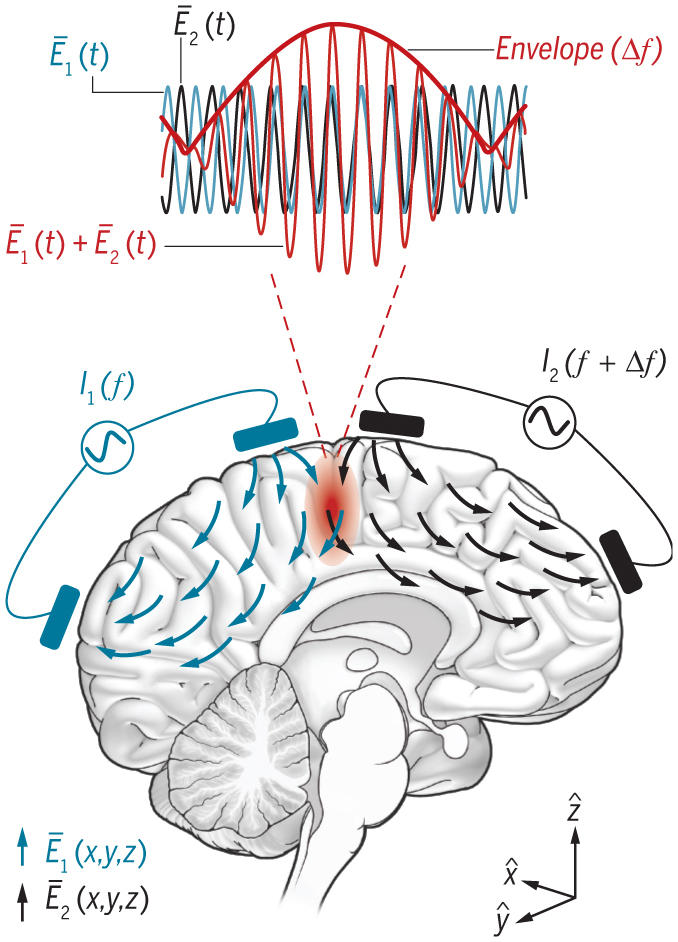International Meeting on Temporal Interference Brain Stimulation

Industry partnerships
Looking to support genuine innovators and their groundbreaking research? Contact us today to learn how you can sponsor this event and showcase your brand to a global audience of industry leaders and professionals.
A UK DRI Workshop
25-26 September 2024
The Stadium Room, Scale Space, White City, 58 Wood Lane, London W12 7RZ
The UK DRI Centre at Imperial College London is excited to host this extended, interactive workshop, bringing together leaders in the novel field of temporal interference (TI) brain stimulation. Boasting an impressive line-up of expert speakers, the programme will comprise four sessions addressing distinct themes, a scientific poster session, a drinks reception, and a networking dinner on the evening of 25 September.
This will be an exclusive meeting for select academic and industrial groups who have been at the forefront of development and/or deployment of TI brain stimulation.
 Background
Background
Since the original report on the temporal interference brain stimulation concept (Grossman et al., Cell 2017), we have seen a novel realm of research emerge, delving into its mechanisms, applications, and improvements. The field has attracted computational and experimental scientists with a broad range of expertise, including Physics, Engineering, Neuroscience, Neurology, and Psychiatry. The transformative potential of TI brain stimulation has garnered notable recognition, including a prestigious award from Science, and has galvanised companies in developing products to support this nascent field. Its promise has also captured the attention of the general public, with coverage from The New York Times, The Guardian, and The Times.
Aim
The overarching aim of this workshop is to cultivate a collaborative environment that enhances the field's impact on brain sciences and diseases. Our goal is to facilitate the exchange of knowledge, and promote synergistic research among active groups across the world, with a focus on the development of hardware and computational tools, deepening mechanistic knowledge, exploring clinical and preclinical applications, and refining improvement strategies. We hope to highlight accomplishments and to identify opportunities, while also addressing challenges and limitations to help guide better practices and the development of improvement strategies.
Thematic Sessions
We will divide the meeting into thematic sessions. Each session will include a combination of short talks and roundtable discussions.
Thematic Sessions

Session I
The first session will look at the tools (hardware and computational) and deployment practices.

Session II
The second session aims to elucidate how we can advance our mechanistic understanding.
G

Session III
The third session will identify clinical and preclinical applications.

Session IV
The fourth and final session will discuss improvement approaches.


